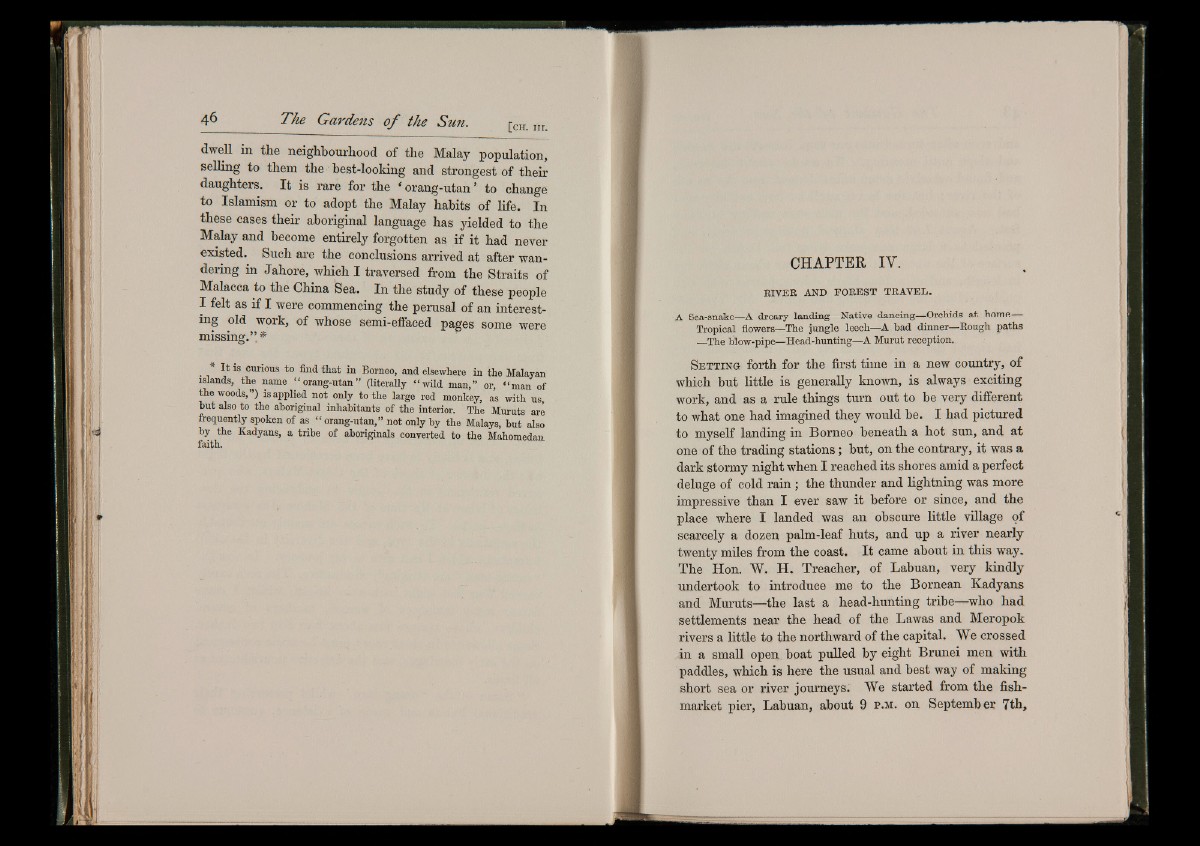
dwell in the neighbourhood of the Malay population,
selling to them the best-looking and strongest of their
daughters. It is rare for the ‘ orang-utan ’ to change
to Islamism or to adopt the Malay habits of life. In
these cases their aboriginal language has yielded to the
Malay and become entirely forgotten as if it had never
existed. Such are the conclusions arrived at after wandering
in Jahore, which I traversed from the Straits of
Malacca to the China Sea. In the study of these people
I felt as if I were commencing the perusal of an interesting
old work, of whose semi-effaced pages some were
missing.’’*
* It is curious to find that in Borneo, and elsewhere in the Malayan
islands, the name “ orang-utan” (literally “ wild man,” or, “ man of
the woods,”) is applied not only to the large red monkey, as with us,
hut also to the aboriginal inhabitants of the interior. The Muruts are
frequently spoken of as “ orang-utan,” not only by the Malays, but also
by the Kadyans, a tribe of aboriginals converted to the Mahomedan
faith.
CHAPTER IV.
RIVER AND FOREST TRAVEL.
A Sea-snake—A dreary landing—Native dancing—Orchids at home—
Tropical flowers—The jungle leech—A bad dinner—Bough paths
—The blow-pipe—Head-hunting—A Murut reception.
S e t t in g forth for the first time in a new country, of
which but little is generally known, is always exciting
work, and as a rule things turn out to he very different
to what one had imagined they would he. I had pictured
to myself landing in Borneo beneath a hot sun, and at
one of the trading stations; but, on the contrary, it was a
dark stormy night when I reached its shores amid a perfect
deluge of cold rain ; the thunder and lightning was more
impressive than I ever saw it before or since, and the
place where I landed was an obscure little village of
scarcely a dozen palm-leaf huts, and up a river nearly
twenty miles from the coast. It came about in this way.
The Hon. W. H. Treacher, of Labuan, very kindly
undertook to introduce me to the Bornean Kadyans
and Muruts—the last a head-hunting tribe—who had
settlements near the head of the Lawas and Meropok
rivers a little to the northward of the capital. We crossed
in a small open boat pulled by eight Brunei men with
paddles, which is here the usual and best way of making
short sea or river journeys. We started from the fish-
market pier, Labuan, about 9 p .m . on September 7th,